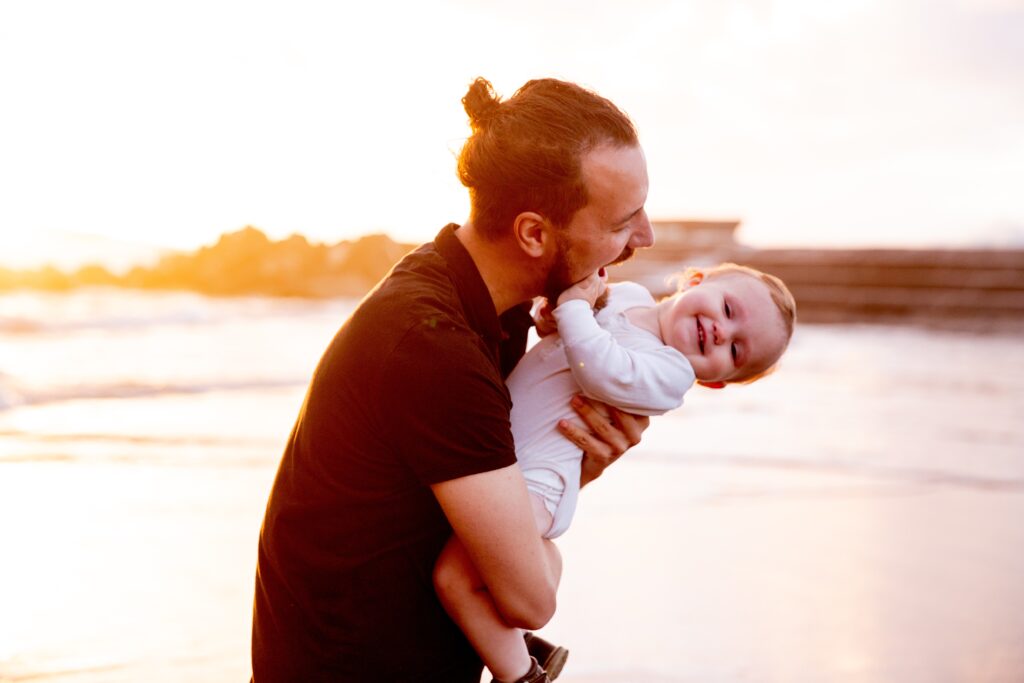Debunking Myths: Does Sleep Training Harm My Child?
June 6, 2023

Sleep training is one of the most controversial topics in early parenting. This topic sparks debate amongst both parents and pediatric professionals alike. Many parents wonder whether sleep training may harm a child’s emotional well-being or affect the parent-child bond.
However, it is important to explore the scientific evidence and debunk common myths which is exactly what we’re doing today. We’ll look at what sleep training is, its effect on a little one’s emotional and psychological well-being, and whether it affects the parent-child bond. My hope is that by the end of today’s article, you’ll have a better understanding of the impact of sleep training on children.
Understanding Sleep Training
Sleep training is the process of teaching infants and young children to self-soothe and establish healthy sleep habits. Contrary to popular belief, sleep training does not involve neglecting or abandoning the child. Instead, it focuses on promoting independent sleep and providing little ones with the tools to fall asleep and stay asleep on their own. There are a wide range of methods and techniques used. The amount of hands of time and the degree of parental presence varies with each sleep training method. Regardless of the method chosen, the parent is actively tuning into their child’s communication throughout the process and responding appropriately.
Effects On Emotional Well-being
One concern frequently raised about sleep training is that it may negatively impact a child’s emotional well-being. However, studies have consistently shown that sleep training, when done appropriately, does not harm a child’s emotional development. In fact, well-rested children often exhibit improved mood, better regulation of emotions, and enhanced cognitive function.
Does Sleep Training Cause Long-Term Harm?
Firstly, there is no evidence that sleep training harms your baby in the long-term. Studies examining sleep training in young children have shown short-term benefits for both the parent and child without any evidence for long-term negative consequences for both parent and child. The literature shows that sleep training results in improved sleep for parent and child, lowers rates of maternal depression, and improves family functioning. In addition, healthy sleep habits established through sleep training can contribute to better overall sleep quality, which in turn positively impacts a child’s cognitive development, behavior, and emotional resilience.
Effects On Parent-Child Bond
Many parents are concerned how sleep training will affect their bond with their infant. This is an especially common concern if you currently feed or snuggle your baby to sleep. You can have it both ways – a strong and attached bond and a baby who falls asleep independently. You can still feed and cuddle your baby before bed in the sleep training process. We usually have you do these two things earlier in the bedtime routine instead of letting them fall asleep in your arms. With sleep training, the goal is to have your baby not associate feeding or rocking with falling asleep. A study done in 2012 shows that after 5 years of sleep training, no differences in attachment were found with children who had and those who hadn’t been sleep trained.
Importance Of An Individualized Approach
It is important to acknowledge that every child is unique, and what works for one may not work for another. The success and impact of sleep training can vary depending on factors such as the child’s temperament, age, and parental consistency.
The beauty of working with a sleep consultant is having a personalized approach and extensive support when trying to improve your little one’s sleep. You can find all sorts of advice online but what sets me apart as a sleep consultant is my ability to tailor my advice and plan to your family. I consider your family’s values and goals plus your parenting style.
In conclusion, research consistently supports the safety of sleep training methods in promoting healthy sleep habits. Sleep training does not harm children. If you have any questions or are interested in getting support to help your little one sleep better, I invite you to reach out to me.
References
- Hiscock H, Bayer JK, Hampton A, Ukoumunne OC, Wake M. Long-term mother and child mental health effects of a population-based infant sleep intervention: cluster-randomized, controlled trial. Pediatrics. 2008 Sep;122(3):e621-7. doi: 10.1542/peds.2007-3783. PMID: 18762495.
- Price AM, Wake M, Ukoumunne OC, Hiscock H. Five-year follow-up of harms and benefits of behavioral infant sleep intervention: randomized trial. Pediatrics. 2012 Oct;130(4):643-51. doi: 10.1542/peds.2011-3467. Epub 2012 Sep 10. PMID: 22966034.